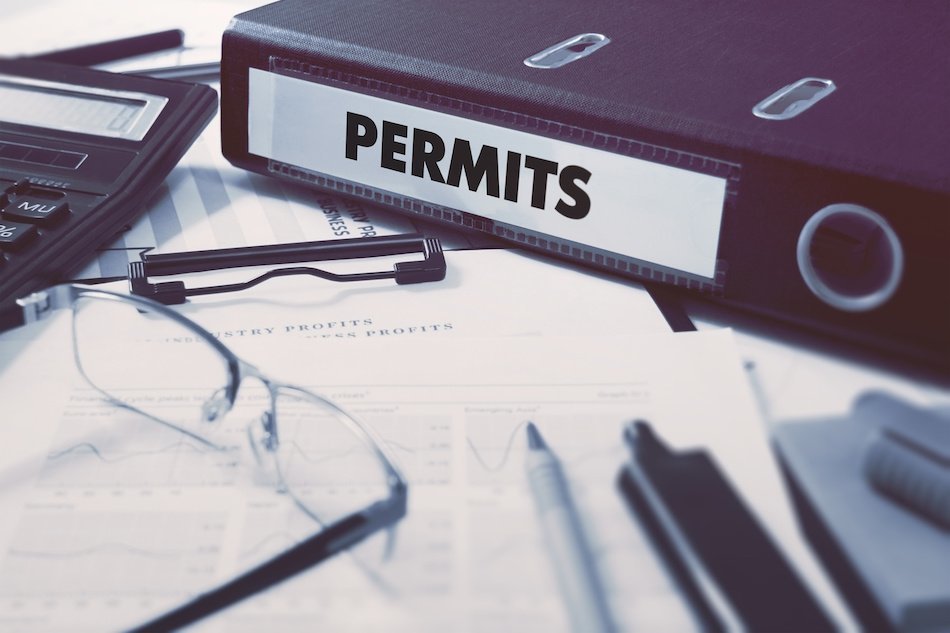Buying a home is one of the biggest investments you’ll ever make. You’ll spend countless hours touring properties, imagining your life in each one, and scrutinizing every detail on the disclosure forms. But what if one of the most significant risks is hidden right under your nose? We’re talking about unpermitted work.
Unpermitted work refers to any construction, remodeling, or renovation done on a property without the necessary permits from the local municipality. This is a common issue, and it can turn your dream home into a financial and legal nightmare.
What’s the Big Deal About Permits?
Permits aren’t just bureaucratic red tape. They’re a way for the city or county to ensure that a project meets safety, structural, and building codes. An inspector checks the work at various stages to confirm that it’s safe and up to standard. When work is done without a permit, it bypasses this crucial safety net.
Potential problems with unpermitted work include:
- Substandard Construction: The work might not be up to code, leading to issues like faulty wiring, improper plumbing, or structural instability. These problems can be dangerous and costly to fix.
- Difficulty Getting Insurance: Your home insurance company might refuse to cover damages related to unpermitted work. If that new deck collapses or the basement wiring starts a fire, you could be left with a huge bill.
- Legal and Financial Headaches: If the city finds out about unpermitted work, they can order you to tear it down or bring it up to code, which can be expensive. In some cases, you could even face fines.
- Problems with Resale: When it’s time to sell your home, unpermitted work can complicate the sale. Buyers might back out, or you may be forced to lower your asking price.
How to Spot Unpermitted Work
Finding unpermitted work can be tricky, as sellers aren’t always required to disclose it. Here’s how to protect yourself:
- Ask for a Permit History Report: During the inspection period, ask the seller for a copy of all permits pulled for the property. You can also contact your local building department directly to request this information.
- Look for Red Flags: Be suspicious of major renovations that seem out of place. Did the previous owner finish the basement or add a new bathroom? Was a wall knocked down to create an open-concept living area? If these changes were recent, ask to see the permits.
- Hire a Meticulous Home Inspector: A good home inspector can often spot signs of unpermitted work, such as amateur wiring, visible repairs, or rooms that don’t quite match the home’s original construction. Don’t be afraid to ask your inspector if they have experience identifying unpermitted work.
- Check the Property Records: Compare the number of bedrooms and bathrooms listed on the public record with what’s actually in the house. A discrepancy could be a sign of an unpermitted addition.
What to Do if You Find Unpermitted Work
If you discover unpermitted work, you have a few options:
- Negotiate with the Seller: You can ask the seller to obtain the necessary permits or cover the cost of bringing the work up to code. This can be a strong bargaining chip.
- Walk Away: If the unpermitted work is extensive or the seller is unwilling to cooperate, it might be best to walk away from the deal.
- Assume the Risk: You can choose to proceed with the purchase, but understand that you’ll be responsible for the cost and hassle of fixing the issue later.
Buying a home is a thrilling journey. By being aware of the risks and taking proactive steps to uncover unpermitted work, you can protect your investment and ensure your new home is safe, legal, and truly yours.
At ViolationClinic.com, we specialize in helping property owners navigate the recertification process smoothly. Whether you need assistance with inspections, violations, or compliance issues, our team is here to help. Don’t wait until it’s too late, take action today to protect your investment and ensure the safety of your building.
For more information or assistance, contact us at ViolationClinic.com!
